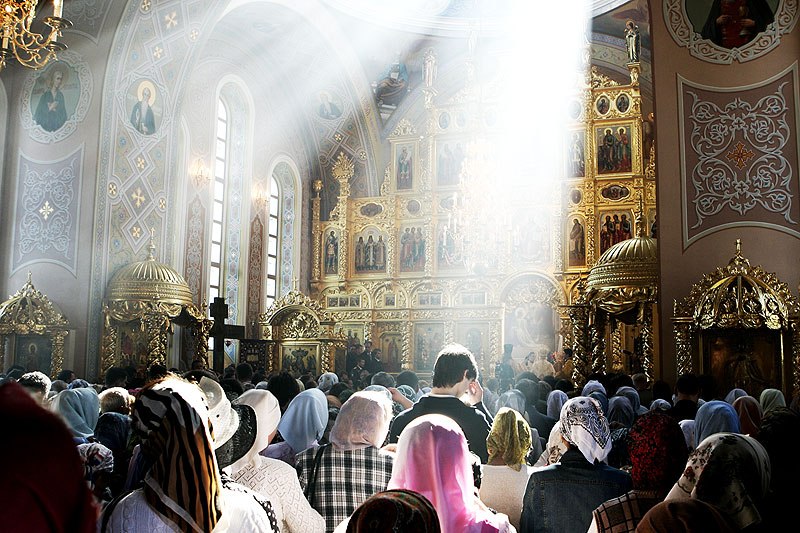| Return to the Welcome Page |
|
Orthodox Worship is Experiential
In Orthodox Christianity both worship and prayer are experiential activities. God is real, man is real, and God is incarnate – that is God took on our human nature and became man, specifically the “God-Man (Theánthropos) Jesus Christ.” We can therefore can have a true, real, and direct experience of God in worship and prayer. Moreover, this experiential encounter with the Living God can transform us, restoring the image of God within us to its original-created beauty. It can also perfect our attainment to the likeness of God, making it possible to live an eternal joyous life with God in heaven. The following patristic quotes express the profound compassion of God toward us, His creatures, and confirm the inexpressible dignity He bestows on every person. Saint Irenaeus the Bishop of Lyons (ca. AD 130–202) wrote that God had “become what we are, that He might bring us to be even what He is Himself” (Against Heresies, Book 5, Preface). Saint Clement of Alexandria (ca. AD 150–215), stated, “The Word of God became a man so that you might learn from a Man how to become a god" (Exhortation to the Greeks, 1). He also wrote, “He who obeys the Lord and follows the prophecy given through Him ... becomes a god while still moving about in the flesh” (Stromata 716,101,4). Saint Justin Martyr (ca. AD 100–165) wrote that in the beginning men “were made like God, free from suffering and death,” and that they are thus “deemed worthy of becoming gods and of having power to become sons of the Highest.” (Dialogue with Trypho, 124). Saint Athanasius the Bishop of Alexandria (ca. AD 296–373), stated “The Word was made flesh in order that we might be made gods ... Just as the Lord, putting on the body, became a man, so also we men are both deified through His flesh, and henceforth inherit everlasting life” (Dialogue with Trypho, 124). He also observed: “For the Son of God became man so that we might become God” (On the Incarnation of the Word, 54, 3: PG 25, 192B. Saint Augustine of Hippo (AD 354–430) wrote “But He Himself that justifies also deifies, for by justifying He makes sons of God. ‘For he has given them power to become the sons of God’ [John 1:12]. If then we have been made sons of God, we have also been made gods” (On the Psalms, 50.2). And also, “To make human beings gods He (The Word) was made man Who was God" ... [they] are not born of His Substance, that they should be the same as He, but that by favour they should come to Him”(Sermon 192.1.1).
|


